Centre-left parties dominate Switzerland’s biggest cities
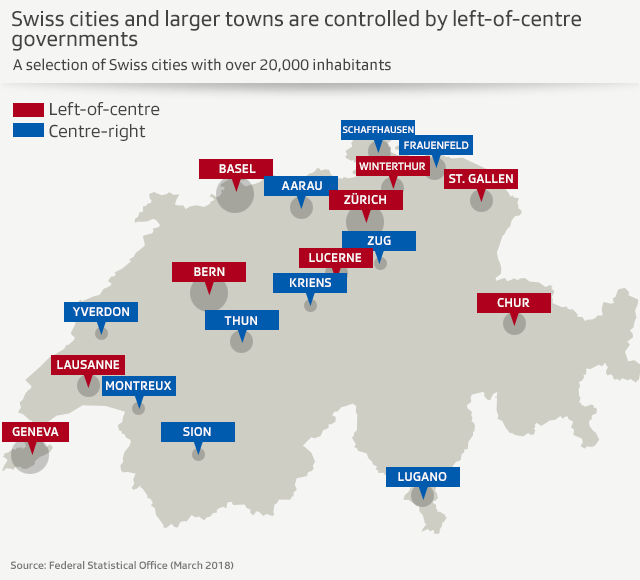
Zurich, Geneva, Basel, Bern, Lausanne, St Gallen: Switzerland’s largest cities are dominated by parties on the political left. Meanwhile, most small towns in peripheral regions are governed by parties on the right, with the left slowly gaining ground in some locations. Why is that?
Elections to the Zurich city council and the local parliament at the beginning of March saw the political left boosting its power at the expense of centrist and rightwing parties. In Switzerland’s biggest city, the leftwing Green Party secured a clear majority (six seats) in the nine-member executive and won a majority in the parliament.
An electoral alliance of centre-right parties clearly failed to break the centre-left’s 28-year grip on the city government.
Since the 1990s, the leftwing Social Democratic Party has grown into the strongest political force in Switzerland’s big towns and cities. In recent years, this shift to the left has been witnessed in smaller towns, such as Aarau, Olten, Baden and Burgdorf in German-speaking Switzerland.
There are numerous reasons for this, say political scientists. A popular argument is the construction of public housing, the expansion of public transport and safe cycling routes, which are generally viewed as positive developments. These kinds of projects are often supported by centre-left parties, while parties to the right tend to oppose or slow them down.
The political right seeks alternatives
After its defeat in Zurich at the beginning of March, the Radicals launched an “FDP-Urban” project, bringing together eight municipal formations from the biggest Swiss cities.
Their aim is to come up with answers to the social and economic questions of the urban population, declared Radical politicians. For too long, they have been content to simply fight the politics of the leftwing parties in the cities, they admit.
Radical shift
Political scientist Michael Hermann told Swiss public radio, SRF, that an individual’s urban identity was much more important when it came to deciding their political orientation than factors such as social status or income. People see themselves as urban residents: even if they have a good salary, they expect a good public service.
“They are quite willing to pay taxes for this,” Hermann says, adding that this is the kind of model that the centre-left parties promote. That is why centre-right parties generally have a tough time in the cities.
National political issues also have an influence on voters’ behaviour in larger cities and towns.
Hermann said the centre-right Radical Party’s shift to the right had not been helpful in this respect. He said this was a great challenge for the cities which had recently moved to the left.
“It’s not easy to bridge this divide,” noted Hermann, who is convinced that the Radicals will struggle to rediscover past levels of political support in the cities.
As the population grows the strongest in the cities, that is where the highest number of additional votes can be gained. The Radicals’ urban strategy is certainly a sensible strategy, but it is by no means guaranteed to be a success, Hermann concluded.
Translated from German by Simon Bradley

In compliance with the JTI standards
More: SWI swissinfo.ch certified by the Journalism Trust Initiative










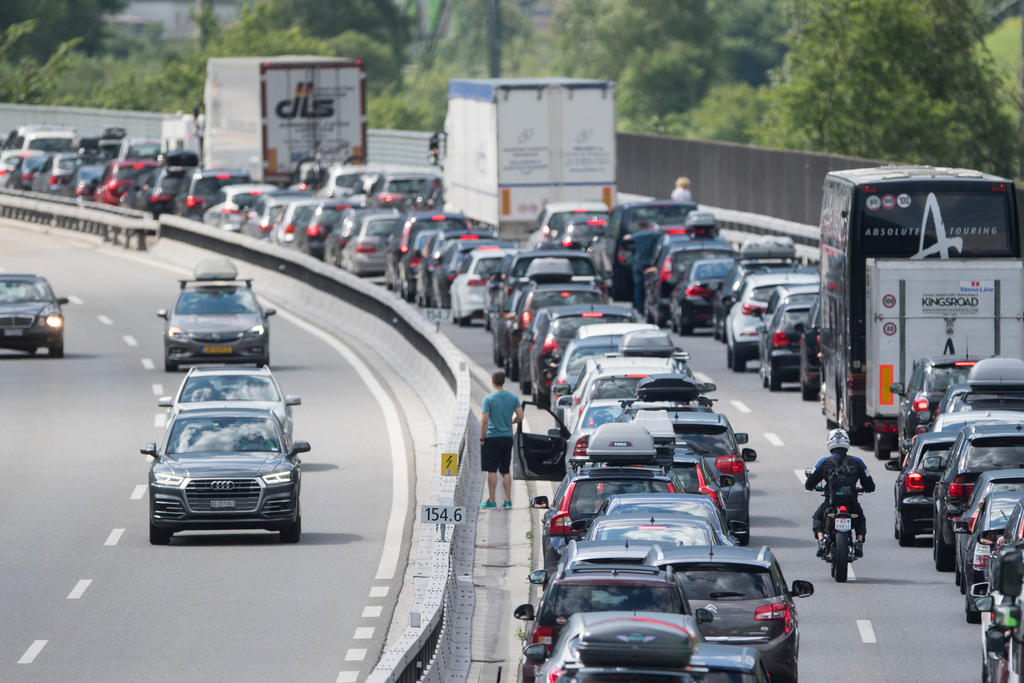
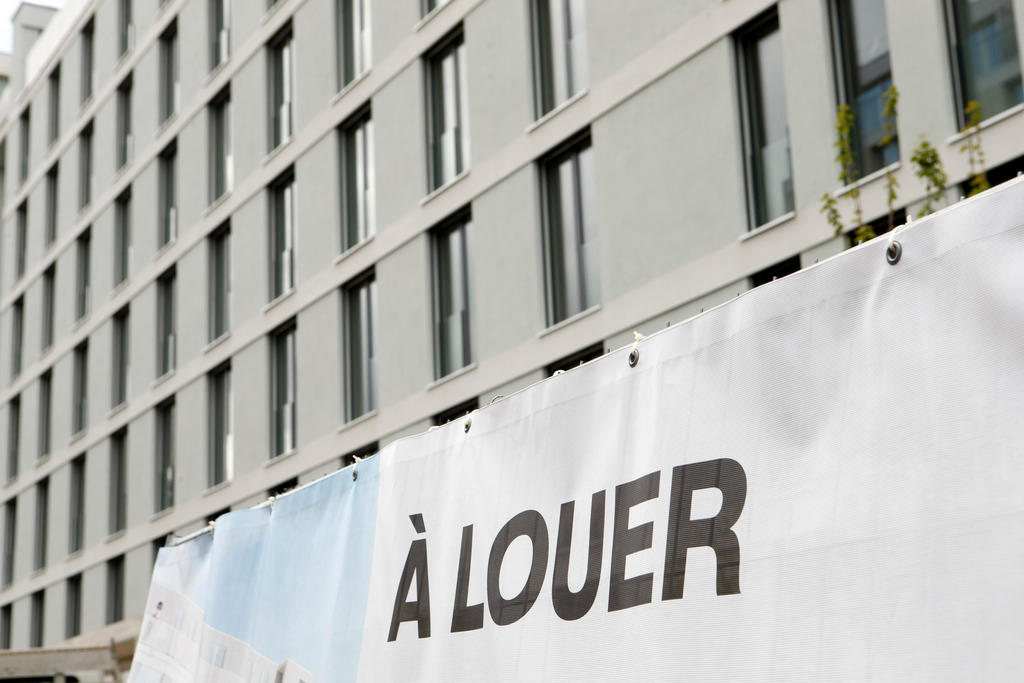
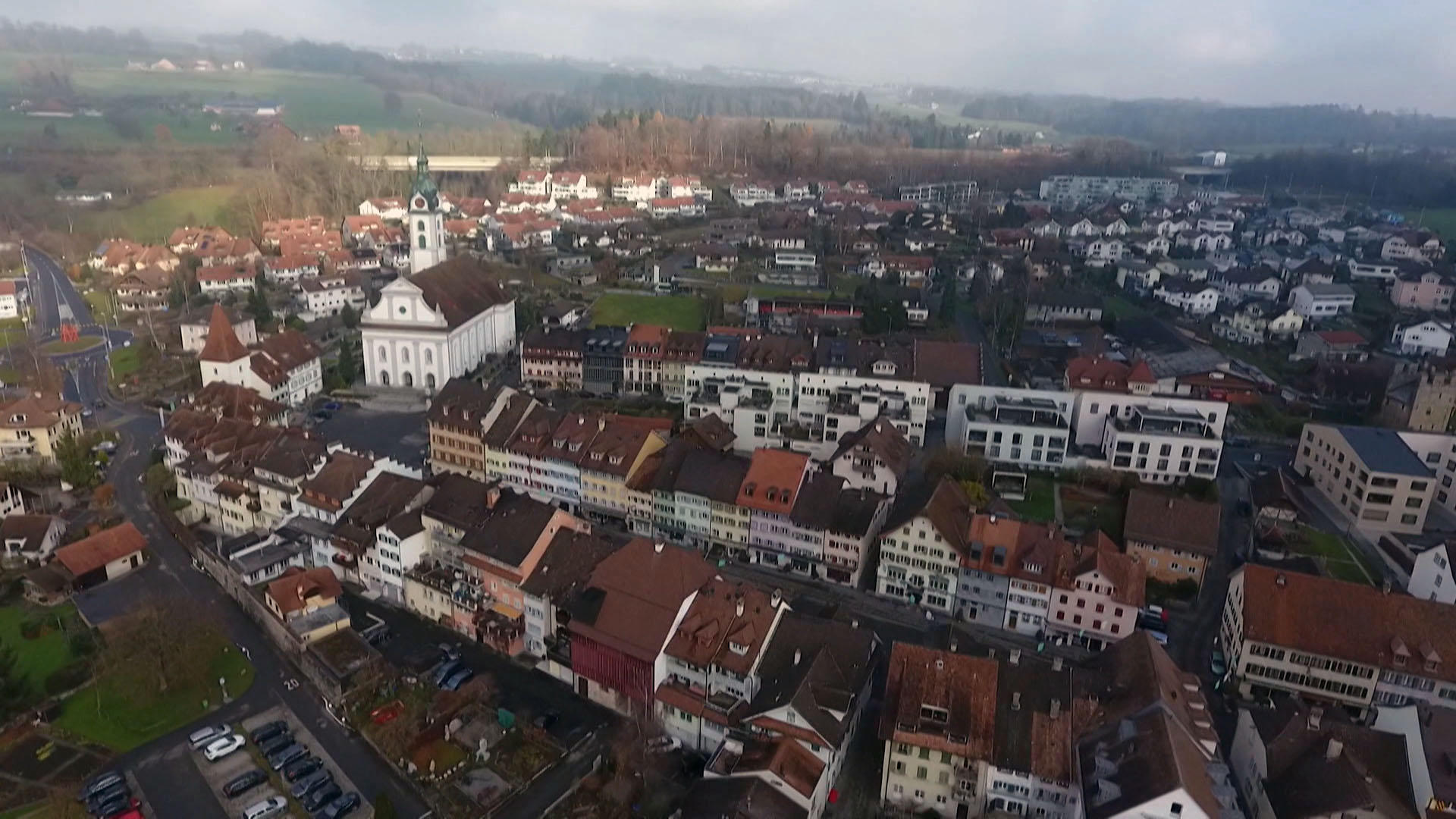
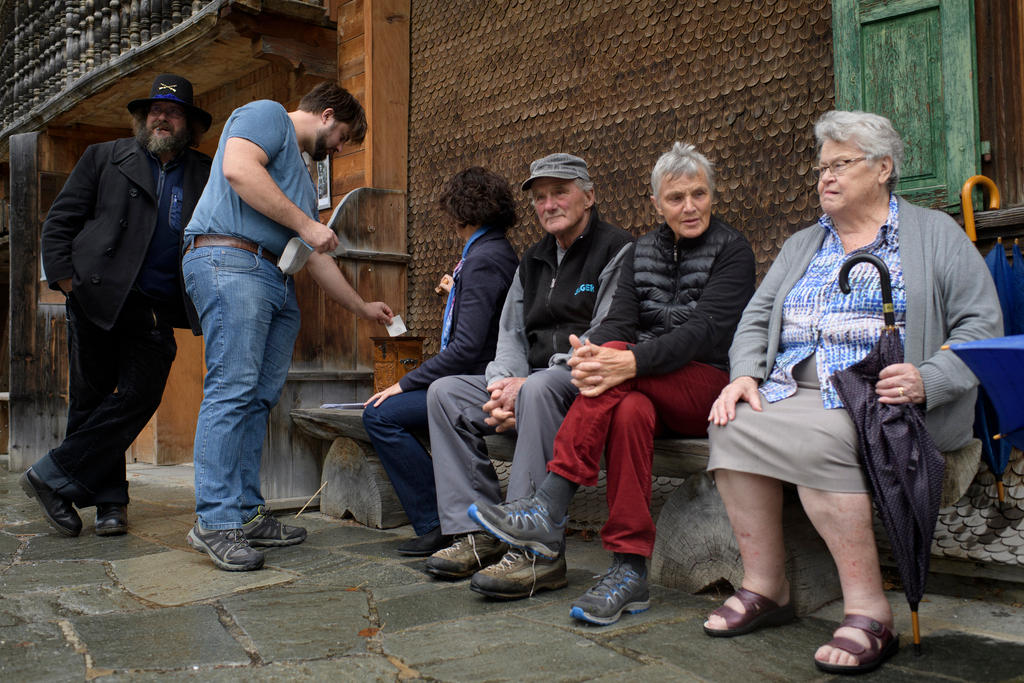


You can find an overview of ongoing debates with our journalists here . Please join us!
If you want to start a conversation about a topic raised in this article or want to report factual errors, email us at english@swissinfo.ch.